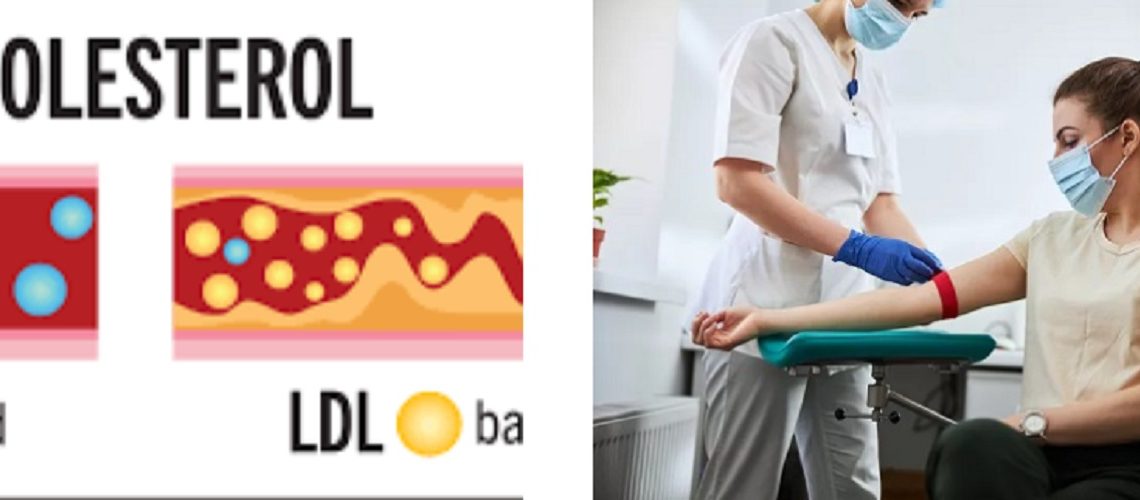

By Adebukola Aluko
Knowing ones status is very vital in determining a healthy lifestyle; a regular or routine check will help address some inadequacies or excesses in our body.
During a recent visit to the clinic, a young lady was asked to carry some test including her “Lipid Profile” and was told it was relatively abnormal. The lady was abruptly shocked seeing her result and was immediately booked for an appointment to see a dietician for an advice on her present status.
Lipid profile…lipid profile, at the mention of this, what really comes to mind? To expatiate on this, we need to understand what cholesterol is. This subject of discussion is indeed a wide one and really needs to be understood from the basics.
What is Cholesterol?
Cholesterol is a waxy, fat-like substance that our bodies need to build healthy cells. Although it often gets a bad rap (and too much can be dangerous), the truth is that our bodies simply cannot function without cholesterol.
Your liver makes all the cholesterol your body needs to perform essential functions like building cells and producing vitamin D and hormones.
Not all cholesterol is the same, Low-density lipoprotein (LDL) or “bad cholesterol” can make plaque in your arteries, putting you at risk for hardened arteries (atherosclerosis), heart disease, vascular issues and more.
On the other hand, high-density lipoprotein (HDL) “good cholesterol” actually helps remove that bad cholesterol from your bloodstream.
If you have high cholesterol levels, it usually means that you have too much LDL and not enough HDL. But there are changes you can make today to help lower your LDL and increase your HDL.
In other words the level of cholesterol in your body is very important in the overall well being of health.
While cholesterol is necessary for health, having normal cholesterol levels is key. For adults, a normal total cholesterol level is 125-200mg/dL. For children, a normal total cholesterol level is less than 170mg/dL. These levels are measured through a blood test called a lipid panel. The test measures not only cholesterol as a whole but also levels of specific types of cholesterol, such as LDL and HDL. Having high total and LDL cholesterol levels and low HDL levels can increase your risk of heart disease and other health issues.
Normal Cholesterol Levels for Men and Women
Here are the cholesterol recommendations for adults aged 20 and over.
Total Cholesterol
Recommended Range 125-200 mg/dL
Borderline High 200 to 239 mg/dL
High 240 mg/dL or higher
What Affects Cholesterol Levels?
There are certain factors that impact your cholesterol levels. Some factors, like age and gender, may be out of your control. But you can change other factors, like diet and activity, to improve your levels.
Factors that affect your cholesterol levels include:
Age and sex: Many people’s cholesterol levels increase as they get older. After menopause, women’s LDL levels get higher, which can increase heart disease risk.
Genetics: Those with a family history of high cholesterol are more likely to have high cholesterol levels. One in every 250 people has something called familial hypercholesterolemia, a genetic condition that causes high levels of LDL cholesterol.
Diet: Following a diet high in ultra-processed and fatty foods and low in nutritious, fiber-rich foods can increase levels of LDL cholesterol and decrease HDL cholesterol.
Body fat levels: Having high body fat levels increases your risk of developing high LDL and low HDL cholesterol.
Activity levels: Leading a low-activity lifestyle is associated with lower HDL and higher LDL cholesterol. Becoming more active can improve cholesterol levels and lower your risk of heart disease.
Smoking and excessive drinking: Smoking is significantly associated with high LDL cholesterol and low HDL cholesterol. Heavy alcohol use can also negatively impact cholesterol levels and heart health.
Maintaining a nutrient-rich diet, getting the recommended amount of exercise, and quitting smoking can help you reach and maintain normal cholesterol levels.
If you’re unsure whether your cholesterol is within a healthy range, make an appointment with your healthcare provider so they can check your levels.
Eat right, eat healthily, remember you are what you eat.
Additional information from :
https://www.health.com/normal-cholesterol-levels-7372680
Subscribe to our Telegram and YouTube Channels also join our Whatsapp Update Group